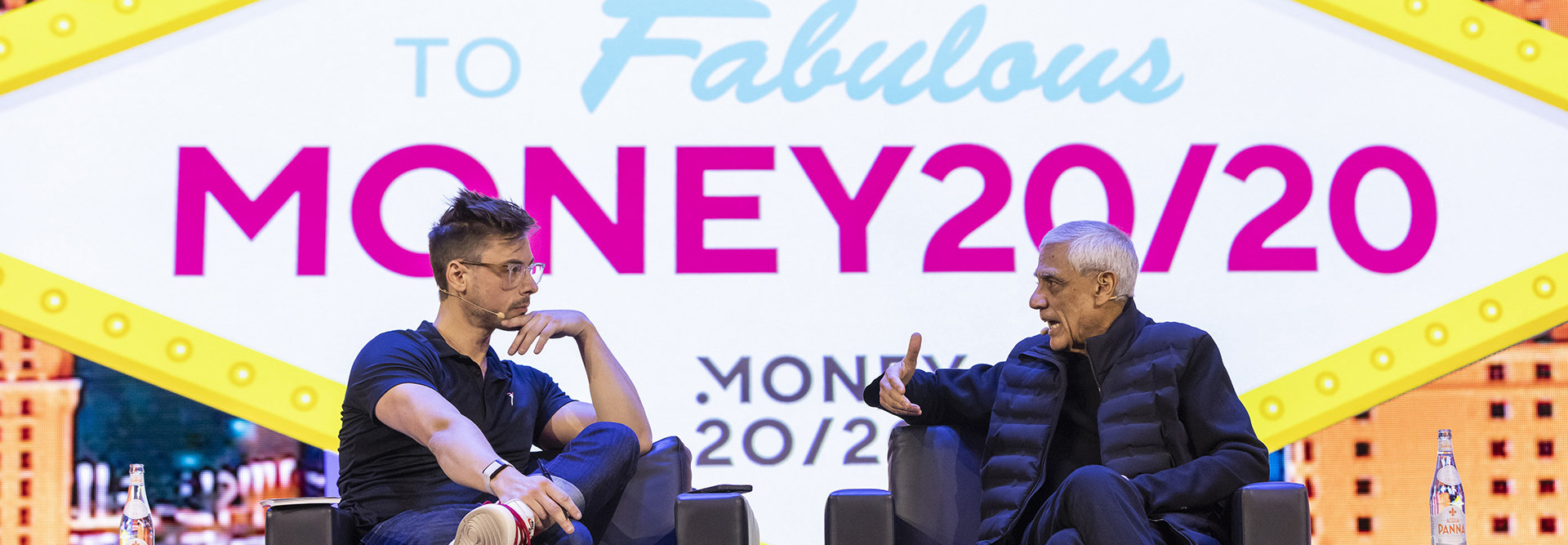AI, Blockchain May Unleash a New Wave of Fintechs
Khosla said that the ongoing maturity of technologies like blockchain and artificial intelligence are likely to empower a new generation of fintech giants.
“As these things come together, I think we’ll see another large wave of innovation over the next five years,” he said. “My general view is that what the internet was for media, commerce and so many industries, we will see it in fintech for banking, law, software contracts and accountancy. And that kind of massive wave is possible if you do some things right.”
Still, the things that must be done right include the removal of some “massive blockers” to innovation. The first of these is the state of the cryptocurrency world, which to date has been too focused on financial speculation and too prone to abuse and criminality to be considered trustworthy by large financial institutions that can deliver long-term capital.
“We need to get rid of the abuses, like ‘pump and dump’ schemes where someone just pumps up tokens and then sells them, with no intention of holding them,” he said. “If those abuses are stopped, we’ll be in a world where long-term businesses can and will be built. Suddenly, much larger businesses become possible.”
GO DEEPER: Discover the most influential voices in the financial services industry.
Is a Global Digital Passport on the Horizon?
Banks and fintechs are required to verify the identity of any prospective customer with whom they do business, a mandate known as “know your customer” or KYC. Cryptocurrency has been used as a way of processing large financial transactions while keeping the identity of those transacting secret.
“Without KYC and trusted identity, we can’t have regulatory compliance,” Khosla said. “You worry about drug smuggling, money laundering, human trafficking — pick your favorite illegal activity. We have to get rid of that. Once we do, you can and will start to build real, sustainable businesses.”
But meeting KYC requirements only gets the fintech industry so far. To unleash the next wave of innovation, a global framework for trusted identity authentication, one that respects individuals’ privacy while meeting international regulatory requirements, will need to be built. Khosla said it would be an international framework to provide “indelible proof of personhood, no matter where someone is in the world,” he said — a kind of digital passport.
He envisions it being built on transparent, open-source technology that could be offered to any country in the world that is willing to accept it.
GET MORE: Follow all of our coverage of Money 20/20.
“You do need a digital identity for everybody. It needs to have both anonymous and recognizable KYC features, but not all features should be available to everyone in the world to see what individuals are doing,” he said.
Over time, such an identity might be used for more than just financial transactions; it could include individuals’ medical records or even be used instead of physical passports to get people through customs when they travel abroad.
“The goal here is to build an open infrastructure, whether you’re talking about identity, payment, health records, etc. — all of it can be customized out of this open-source infrastructure,” Khosla said. “Most countries don’t have the ability to do this well without getting locked into a specific vendor.”
It’s a hard problem to solve, Khosla acknowledged, and could make many individuals and governments very uneasy. Still, he adds, “I do think it could work. What should happen is not always what does happen, and each country may choose to do it differently.”











